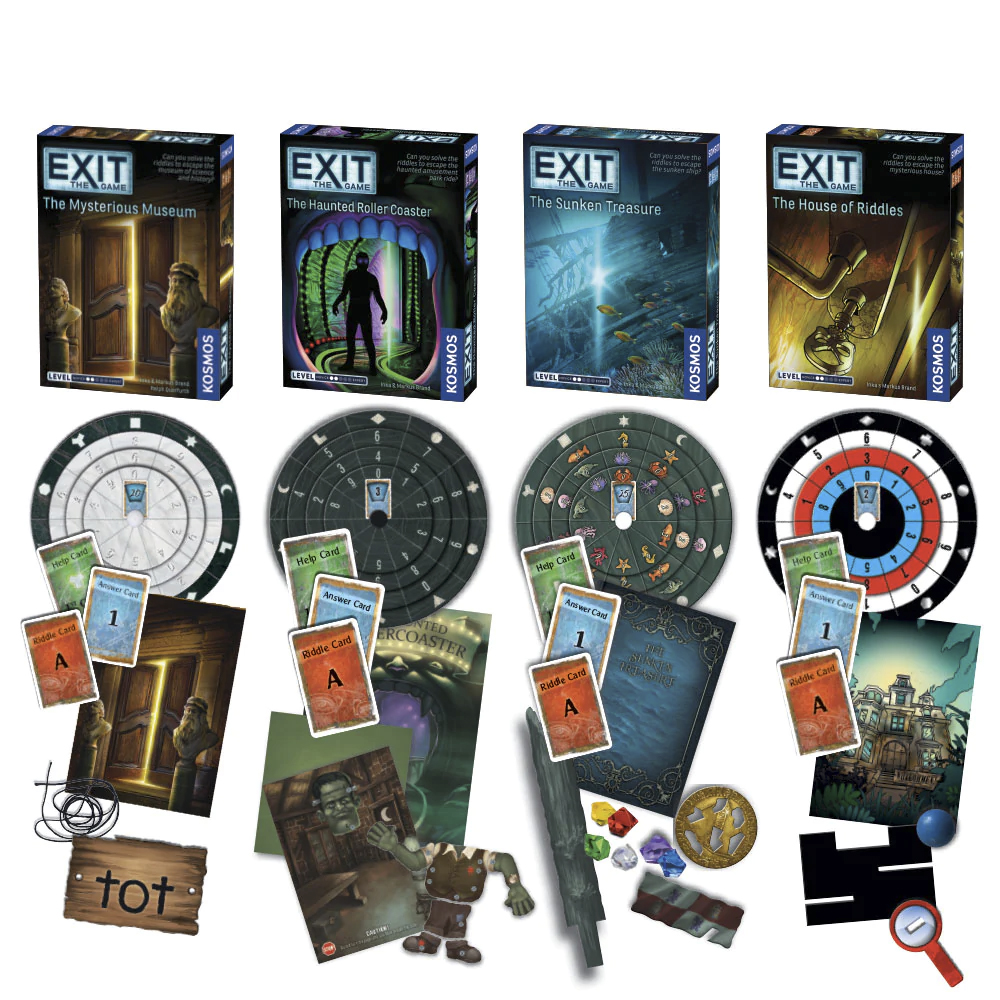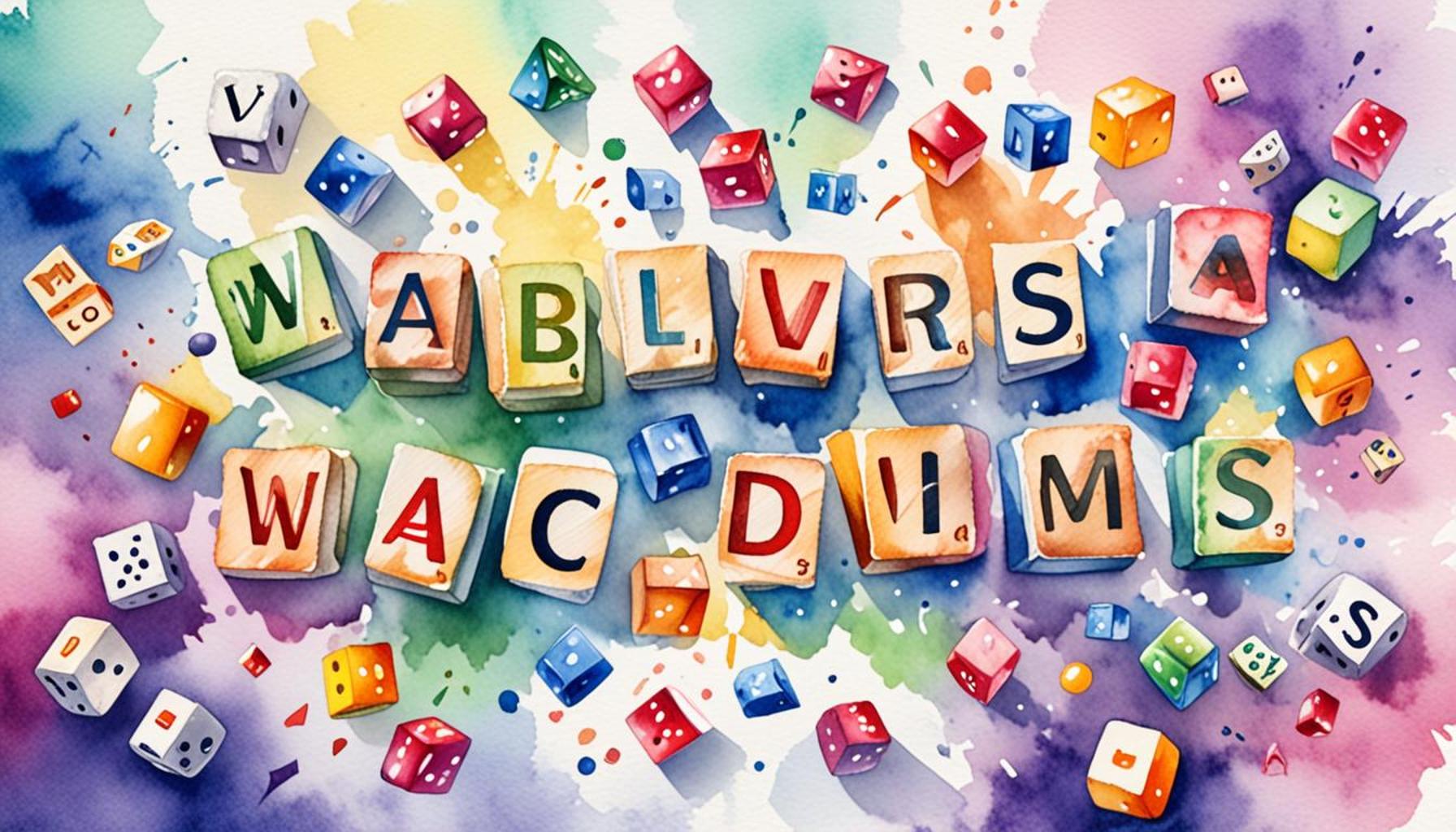Escape Rooms and the Dynamics of Collaboration: Learning to Solve Problems as a Team

Unlocking Team Potential Through Escape Rooms
In today’s fast-paced world, effective teamwork is essential for success. Escape rooms have emerged as a thrilling way to foster collaboration and enhance problem-solving skills among groups. These immersive experiences challenge participants to work together under pressure, drawing on the diverse talents each individual brings to the table. By engaging in these stimulating environments, teams can unlock their full potential, boosting both creativity and cohesion.
One of the most compelling aspects of escape rooms is the real-time problem-solving element they provide. Participants are thrust into a narrative where they must decipher codes, uncover hidden objects, and solve intricate puzzles within a set time limit. This sense of urgency drives teams to collaborate effectively, utilizing various perspectives to approach tasks. For instance, a recent study found that teams engaging in escape room activities demonstrated a 25% increase in problem-solving abilities and faster decision-making skills. Such real-world applications can translate directly into workplace efficiency, enhancing overall productivity.
Communication skills are also significantly improved through the escape room experience. Effective dialogue among team members is critical for sharing clues and ideas. When participants are immersed in the challenge, they learn to communicate openly and effectively, which fosters trust and respect. A successful escape requires everyone to contribute, leading to a more inclusive environment. In one notable case, a corporate team reported that after participating in an escape room, employees felt more comfortable sharing their opinions during meetings, directly correlating with an increase in innovative ideas by 35% in subsequent projects.
Moreover, escape rooms encourage role assignment, where each member can take on specific roles based on their strengths. This not only empowers participants to showcase their skills but also fosters a deeper understanding of team dynamics. For example, one member might excel at logic puzzles, while another may be a natural communicator who keeps morale high. This dynamic allows teams to flourish as they learn to depend on one another’s unique contributions.
Statistics show that organizations utilizing collaborative exercises—like escape rooms—report higher productivity and improved morale. By navigating challenges and overcoming obstacles together, participants learn invaluable lessons that extend beyond the walls of the room. Furthermore, companies that invest in such team-building activities may experience reduced turnover rates, as employees are more engaged and satisfied with their work environments.

From corporate team-building outings to family gatherings, escape rooms serve as more than just fun; they are a conduit for personal and professional growth. As teams immerse themselves in these unique environments, they build relationships, enhance communication skills, and improve overall efficiency. The lessons learned in these thrilling scenarios can transform the way teams operate, paving the way for innovative solutions and stronger collaboration in any setting. Delve deeper into how these unique environments can transform the way teams operate and discover the hidden potential waiting to be unlocked.
DIVE DEEPER: Click here to discover how mindfulness can help you find calm</p
Engaging in Effective Problem-Solving Dynamics
Engaging in an escape room challenges teams to navigate a series of complex puzzles and obstacles in a limited timeframe, simulating high-pressure situations they may encounter in their professional environments. The immersive nature of escape rooms necessitates a swift shift from individual tasks to an integrated effort, where collaboration becomes paramount. This shift in perspective is crucial, as it mirrors real-world work scenarios where diverse contributions from team members can lead to innovative solutions.
One major component of this collaborative dynamic is strategic thinking. Teams must quickly assess the situation, brainstorm ideas, and prioritize actions to achieve their objectives. This experience encourages participants to step outside their comfort zones, fostering adaptability and flexibility—skills that are increasingly important in today’s fast-evolving job market. A survey conducted by the Association for Talent Development revealed that 75% of professionals believe that effective collaboration is vital for enhancing problem-solving capabilities at work. Escape rooms act as a training ground for these essential qualities.
Additionally, escape rooms facilitate the development of creative problem-solving strategies. As teams face an array of challenges, they must adapt their thinking, often reconsidering their approaches to puzzles. This creative exercise allows them to think beyond conventional boundaries, exploring unorthodox solutions to problems. Participants learn that there is no single correct answer; multiple paths can lead to success. This realization not only enhances their cognitive skills but can also ignite a spark of innovation that is beneficial in a business setting. Employees who respect multiple problem-solving approaches tend to report heightened job satisfaction and loyalty.
To highlight the key dynamics of collaboration fostered in escape rooms, consider the following attributes that these experiences promote:
- Active Listening: Participants must attentively listen to their teammates’ ideas and contributions, which cultivates a culture of respect and encourages open dialogue.
- Conflict Resolution: It’s common for differences in opinion to arise. Escape rooms teach participants to navigate disagreements constructively, paving the way for a more harmonious workplace.
- Trust Building: Successful escapes require a high level of trust among team members, which is reinforced by relying on each other’s strengths to achieve common objectives.
- Shared Objectives: By working together towards a common goal, team members learn the importance of unity and the benefits of collaborative success.
These skills gained in the escape room extend beyond the confines of the game, as many participants report a direct correlation between their experiences and their subsequent performance at work. A post-escape room feedback session revealed that 80% of participants felt more connected to their teammates, contributing to a more collaborative work environment. Thus, escape rooms do not merely provide entertainment; they serve as a powerful tool for cultivating effective teamwork in various settings.
In summation, the escape room experience presents invaluable scenarios for practicing teamwork, enhancing problem-solving capabilities, and refining communication skills. As organizations continue to invest in unique team-building experiences, the lessons learned within these walls can resonate throughout their entire culture, inspiring collaboration and innovation in everyday work tasks.
Exploring Team Dynamics in Escape Rooms
Escape rooms are more than just an entertaining diversion; they serve as a profound arena for examining the intricacies of team collaboration and problem-solving. In these immersive environments, participants are brought together to tackle complex challenges within a limited timeframe. This pressure cooker scenario tests not only individual skills but also how well team members can communicate, strategize, and innovate. One of the critical elements of escape rooms is their ability to focus on enhanced communication. Team members must articulate their thoughts clearly to share insights about clues and puzzles, fostering a dialogue that encourages collaboration. This scenario creates a dynamic where silent observers can transform into engaged participants, enhancing overall team synergy.Moreover, the diverse types of puzzles often found in escape rooms—ranging from logical riddles to physical challenges—allow individuals to leverage their unique strengths, showcasing the importance of role specialization. When team members identify and utilize their distinct skills, it empowers the group to tackle tasks more effectively.Additionally, the lessons learned in these high-pressure settings extend beyond the escape room. The collaboration techniques honed during the experience can positively impact workplace dynamics, promoting a culture of teamwork and innovation in professional environments. For instance, as teams navigate through challenges, they learn to trust one another, a valuable lesson that translates well into business contexts.In essence, escape rooms are not just about finding an exit; they uniquely illustrate the dynamics of collaboration in problem-solving scenarios. Engaging in these activities allows teams to explore and develop essential skills like leadership, communication, and strategic thinking—all crucial for success in today’s fast-paced world.
| Category | Key Features |
|---|---|
| Communication Skills | Encourages clear dialogue among team members |
| Role Specialization | Allows individuals to utilize unique strengths for better outcomes |
By immersing themselves in escape room scenarios, teams not only develop vital collaborative skills but also foster a shared sense of accomplishment. As organizations look to enhance their team-building strategies, the intriguing concept of escape rooms presents an engaging and effective solution.
DIVE DEEPER: Click here to enhance your understanding
The Role of Leadership in Collaborative Success
Another significant aspect of teamwork that emerges through escape room experiences is the role of leadership in driving collaboration and ensuring that all voices are heard. In the context of an escape room, participants may naturally divide into roles based on their strengths, whether that leads to someone directing the group or facilitating discussions. Leadership in this environment is fluid; it often shifts as participants navigate different challenges, demanding recognition and empowerment from team members.
Research from the Center for Creative Leadership indicates that effective leaders actively encourage team participation, harnessing the diverse skills of all members. Escape rooms provide an excellent platform for aspiring leaders to practice these skills, as they must motivate others while also being receptive to input. A study published in the “Journal of Management” showed that leaders who embrace collaborative problem-solving techniques can significantly improve both team productivity and morale. Thus, by fostering a balanced leadership approach, participants not only strengthen their own leadership styles but also contribute to creating a supportive team environment.
Furthermore, the dynamic nature of escape rooms necessitates an understanding of emotional intelligence among team members. This ability to perceive, evaluate, and manage both one’s own emotions and those of others can drastically enhance team effectiveness. As participants work under pressure, emotional intelligence becomes apparent in their reactions to stressors and communication patterns. Teams with high emotional intelligence are more adept at reinforcing positive interactions and mitigating conflict, which is essential for achieving success in tense situations. Data from Harvard Business Review suggests that emotionally intelligent teams are better equipped to achieve collective objectives and maintain a positive work atmosphere.
Adapting to Varying Perspectives
Being part of an escape room experience also illuminates the necessity of adaptability and empathy when solving problems as a team. Participants engage with varying perspectives, leading to a richer, more nuanced understanding of the challenges at hand. This interplay fosters a culture of inclusivity, where differences are not seen as obstacles but rather as opportunities for growth and creativity. The importance of this collaborative mindset transcends the escape room and sees value in diverse thinking, a perspective advocated in numerous business training programs today.
According to a report from the McKinsey Global Institute, diverse teams outperform their less diverse counterparts by 35% when it comes to profitability and value creation. This suggests that integrating individuals with varying backgrounds and insights within a team can manifest as a crucial competitive advantage. Escape rooms are a microcosm of such settings, allowing participants to merge their unique strengths, learn from each other, and cultivate a shared understanding, ultimately enhancing their collaborative efforts.
Real-World Applications of Escape Room Skills
The skills acquired in escape rooms have profound real-world implications. Organizations can leverage this experiential learning to foster a culture of collaboration and innovation. Companies like Google and Microsoft have integrated similar team-building scenarios that draw from escape room principles. These initiatives have been associated with improved employee engagement rates and retention, further emphasizing the practical benefit of investing in team-building activities that sharpen collaboration and problem-solving skills.
Therefore, the enriched dynamics of collaboration experienced in escape rooms not only instill a sense of teamwork among participants but also energize their workflows, shaping their ability to overcome professional challenges collectively and creatively. With each challenge tackled in these immersive environments, teams become more cohesive, which resonates positively in their everyday interactions at work. The path to effective collaboration may very well begin within the captivating walls of an escape room.
DIVE DEEPER: Click here to learn how puzzles boost your brainpower
Conclusion: Unlocking Collaborative Potential through Escape Rooms
In today’s fast-paced and interconnected work environment, the ability to collaborate effectively is more critical than ever. Escape rooms serve as a dynamic training ground for teams looking to hone their problem-solving skills while embracing the art of collaboration. By immersing participants in high-pressure scenarios, escape rooms highlight the value of leadership, emotional intelligence, adaptability, and inclusivity. Each element plays a vital role in not only solving intricate puzzles but also in cultivating a synergistic team culture.
The findings from various studies indicate that teams engaging with the principles learned in escape rooms often enjoy heightened productivity and morale—a notion supported by organizations like Google and Microsoft that have adopted similar collaborative frameworks. By fostering an environment where diverse perspectives are welcomed and team members are encouraged to share their insights, escape rooms exemplify how transformation can occur through cooperation.
As the workforce continues to evolve, the lessons drawn from escape room experiences may prove invaluable. Organizations seeking to thrive should consider integrating such team-building exercises into their professional development strategies. Emphasizing collaboration enhances team resilience and paves the way for innovative solutions to emerge, ultimately leading to greater organizational success. Thus, the captivating world of escape rooms does not merely entertain; it equips teams with essential tools they can use to navigate the complexities of the workplace with confidence and creativity—an endeavor well worth pursuing.


